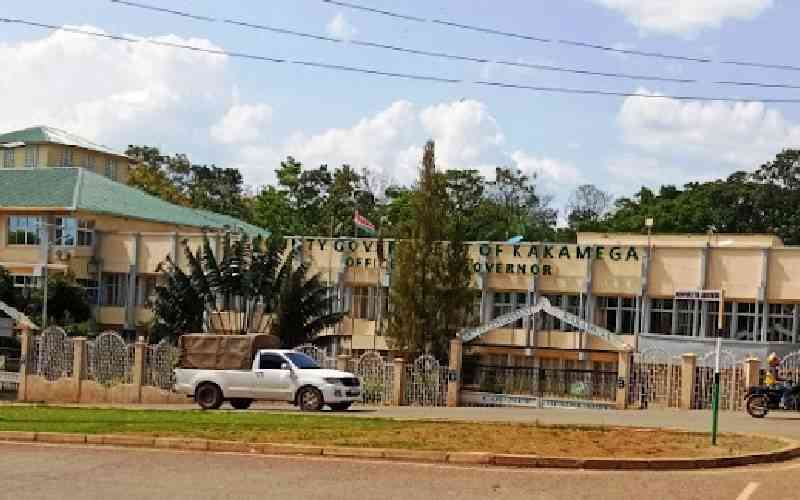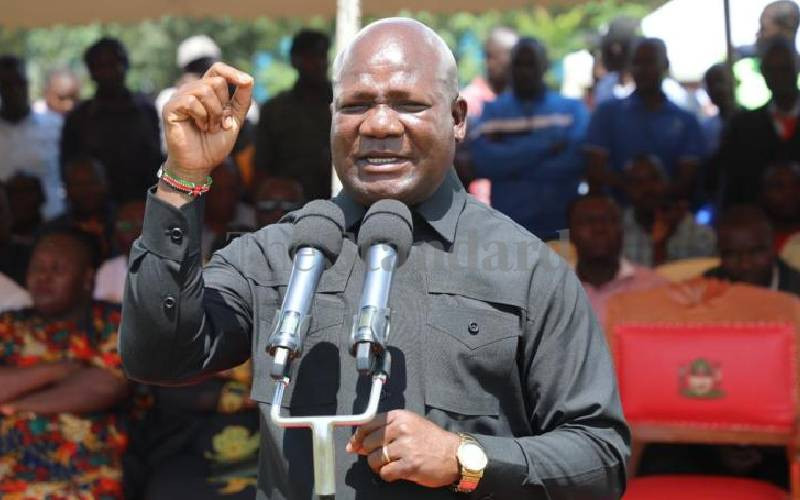KAKAMEGA: Timothy Baraza's brother has been missing since 2008. For the family, the last six years have been the longest and most agonising. Since the brother, Reuben Mukitanga, disappeared, the family has been torn between hope and despair. Sometimes, soothsayers promised to get Reuben home in one piece and soon but as days passed without any sign of him, the family was left with doubts.
There at times they think Reuben's disappearance was a result of witchcraft. Before 2008, he had disappeared two times but reappeared after a while; the first time being 1991 but returned three years later.
"You know such incidents make it tough especially in a polygamous setting like ours where children of a different mother point at each other over the disappearance of a kin," he told Wednesday Life how his missing brother Reuben has caused a silent rift between the family.
This is one of the negative effects a missing person leaves behind. The agonising fruitless search leaves one psychologically tense and anything, or anyone, nearby can be blamed.
"So-and-so does not seem to care about my missing brother or child," one can testily proclaim.
After the mind sets itself on the blame game, then it moves to the next level where the person seen not to be empathising enough is assumed to have organised the disappearance. Theories come up. Suspicions run high. Then hatred begins to germinate in the home. A hitherto loving and united family begins to disintegrate.
Pastors and fortune tellers give some hope to the desperate families. Many times money is spent to buy reassurance that the lost kin will resurface someday. Lots of it.
Sometimes seers come up with strange revelations. For example, Timothy's family was told that "he could have returned to the river where he was circumcised while naked for a birth." In his culture, one is not supposed to take a bath in a river where he was initiated to adulthood.
Generally, those whose kin disappear, are looked down upon; that there is something wrong with them and that is why the person disappeared.
They draw conclusions. They hardly bother to hear the family's story about the disappearance, says Martin Musumbi, 65, from Kakamega County whose wife disappeared in 2010. Basically, you are on your own. Dealing with the pain of loss, the anxiety, all.
"It has been a lonely journey of looking for her because many feel that someone cannot just disappear. That there must be something we did to influence it but it is hardly said in the open. People approach you with suggestions to go check on a diviner or magician if you turn down that advice they take offense," he says.
Mzee Wanyonyi from Marakaru in Bungoma says that there are cases where one's children can be "spread" to the four corners of the world through black magic.
"Your son can go to Mombasa for up to 20 years without coming back. He may send you money but will never attend important events like funerals even for a close kin, tell me what that is if not the work of a wicked fellow?" he poses.
Patricia Kiriaga a social work lecturer at Masinde Muliro University says that a kin's disappearance is a matter that should be handled with sobriety among family members lest it tears the family or comprises search efforts.
"In African traditional belief, people don't just get lost. However, there are now emergent crimes such as kidnappings," she said.
Stay informed. Subscribe to our newsletter
With this new reality, support for families whose loved ones disappear is paramount, says Joachim Omondi, a counsellor.
"They need understanding, not criticism. Console them. Find out how they are going on and let them talk about their lost kin. This will help them cope with the haunting anxiety," he says.
 The Standard Group Plc is a
multi-media organization with investments in media platforms spanning newspaper
print operations, television, radio broadcasting, digital and online services. The
Standard Group is recognized as a leading multi-media house in Kenya with a key
influence in matters of national and international interest.
The Standard Group Plc is a
multi-media organization with investments in media platforms spanning newspaper
print operations, television, radio broadcasting, digital and online services. The
Standard Group is recognized as a leading multi-media house in Kenya with a key
influence in matters of national and international interest.
 The Standard Group Plc is a
multi-media organization with investments in media platforms spanning newspaper
print operations, television, radio broadcasting, digital and online services. The
Standard Group is recognized as a leading multi-media house in Kenya with a key
influence in matters of national and international interest.
The Standard Group Plc is a
multi-media organization with investments in media platforms spanning newspaper
print operations, television, radio broadcasting, digital and online services. The
Standard Group is recognized as a leading multi-media house in Kenya with a key
influence in matters of national and international interest.








